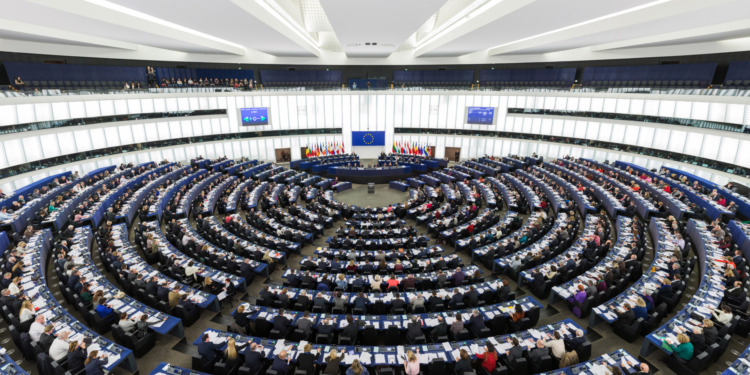The European Parliament approved on Wednesday — with a resounding majority of 374 votes for, 235 against, and 19 abstentions — a set of new rules for businesses operating in the European Union (EU).
In the EU’s words, the new rules will “require firms and their upstream and downstream partners, including supply, production and distribution to prevent, end or mitigate their adverse impact on human rights and the environment.” This will include impacts on slavery, child labor, labor exploitation, biodiversity loss, pollution and the destruction of natural heritage.
Under the directive, EU companies and their parent entities with over 1,000 employees and a global turnover exceeding €450 million will fall under its purview; companies engaged in franchising or licensing agreements in the Bloc, generating over €80 million in royalties, will also be subject to compliance — as will non-EU firms reaching similar financial thresholds within the EU market.
“These firms will have to integrate due diligence into their policies, make related investments, seek contractual assurances from their partners, improve their business plan or provide support to small and medium-sized business partners to ensure they comply with new obligations,” writes the EU.
They will also be required to align their business models with the ambitious targets outlined in the Paris Agreement, aiming to limit global warming to 1.5°C.
How will it work?
Member states will be mandated to establish supervisory authorities to oversee companies’ compliance and impose penalties — fines of up to 5% of a company’s net worldwide turnover as well as “naming and shaming.” Companies found in breach of their due diligence obligations will be held liable for damages and required to provide full compensation to affected parties.
The European Commission will also set up a European Network of Supervisory Authorities to “support cooperation and enable exchange of best practices.”
Related Articles: The EU’s Tango With Sustainability: New ESG Reporting Standards Adopted | EU’s Emission Trading System Delivers Record Slashes | 6 Ways to Remove Carbon Pollution From the Sky | Will International Carbon Markets Finally Deliver? | The Voluntary Carbon Market: Unregulated and Useless? | EU to Set up New Carbon Removal Certification Framework | Zero-Emission Buildings by 2050: EU Adopts New Law
What next?
Having been approved by the Parliament, the directive now awaits formal endorsement by the Council before being signed into law. It will take effect 20 days later, with member states given two years to transpose its provisions into national legislation.
As the EU explains, the rules will apply gradually for EU companies and non-EU companies with the same turnover thresholds in the Bloc:
- “From 2027 to companies with over 5,000 employees and worldwide turnover higher than 1500 million euro;
- From 2028 to firms with over 3,000 employees and a 900 million euro worldwide turnover;
- From 2029 to all the remaining companies within the scope of the directive (including those over 1,000 employees and worldwide turnover higher than 450 million euro).”
“Today’s vote is a milestone for responsible business conduct and a considerable step towards ending the exploitation of people and the planet by cowboy companies,” said lead MEP Lara Wolters after the vote. “This law is a hard-fought compromise and the result of many years of tough negotiations. I am proud of what we have achieved with our progressive allies. In Parliament’s next mandate, we will fight not only for its swift implementation, but also for making Europe’s economy even more sustainable.”
Editor’s Note: The opinions expressed here by the authors are their own, not those of Impakter.com — In the Cover Photo: The hemicycle of the European Parliament in Strasbourg, France. Cover Photo Credit: Wikimedia Commons.










